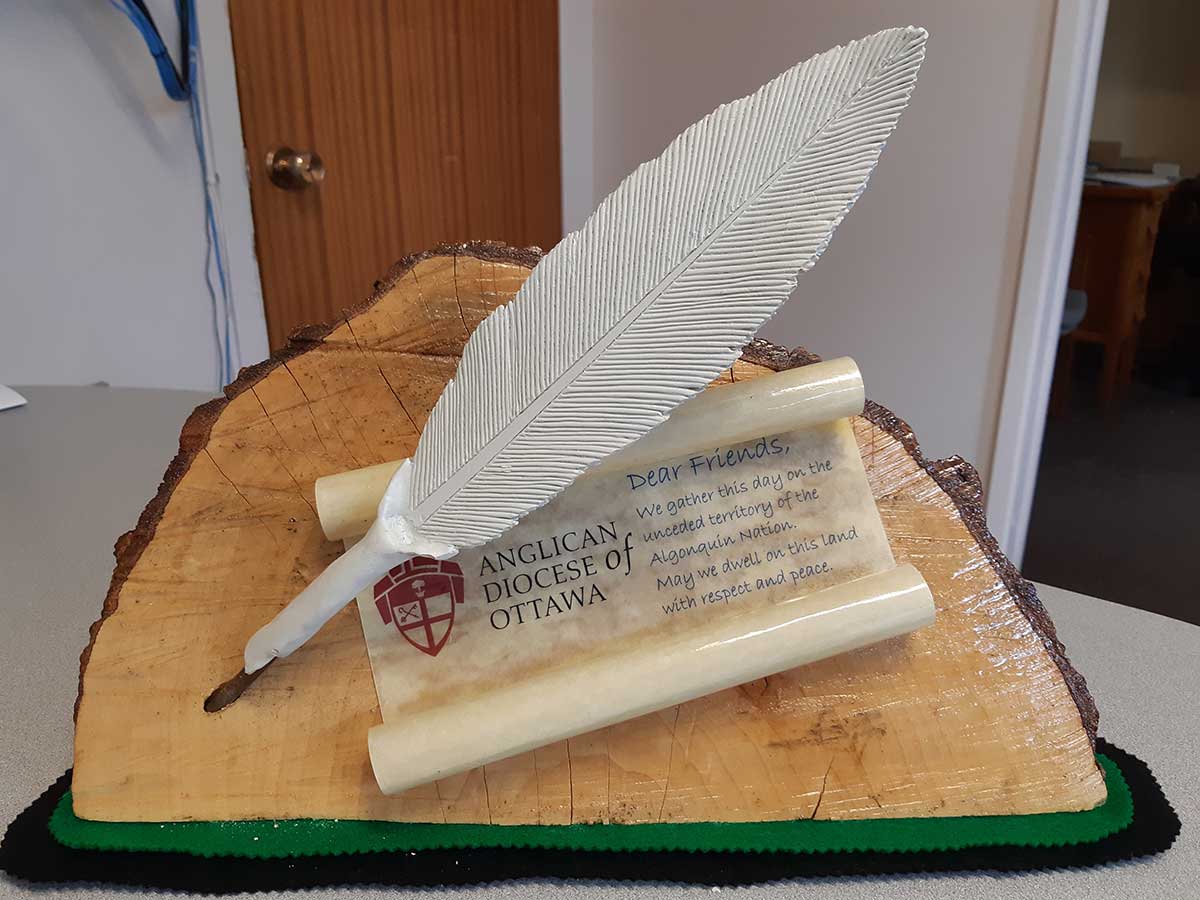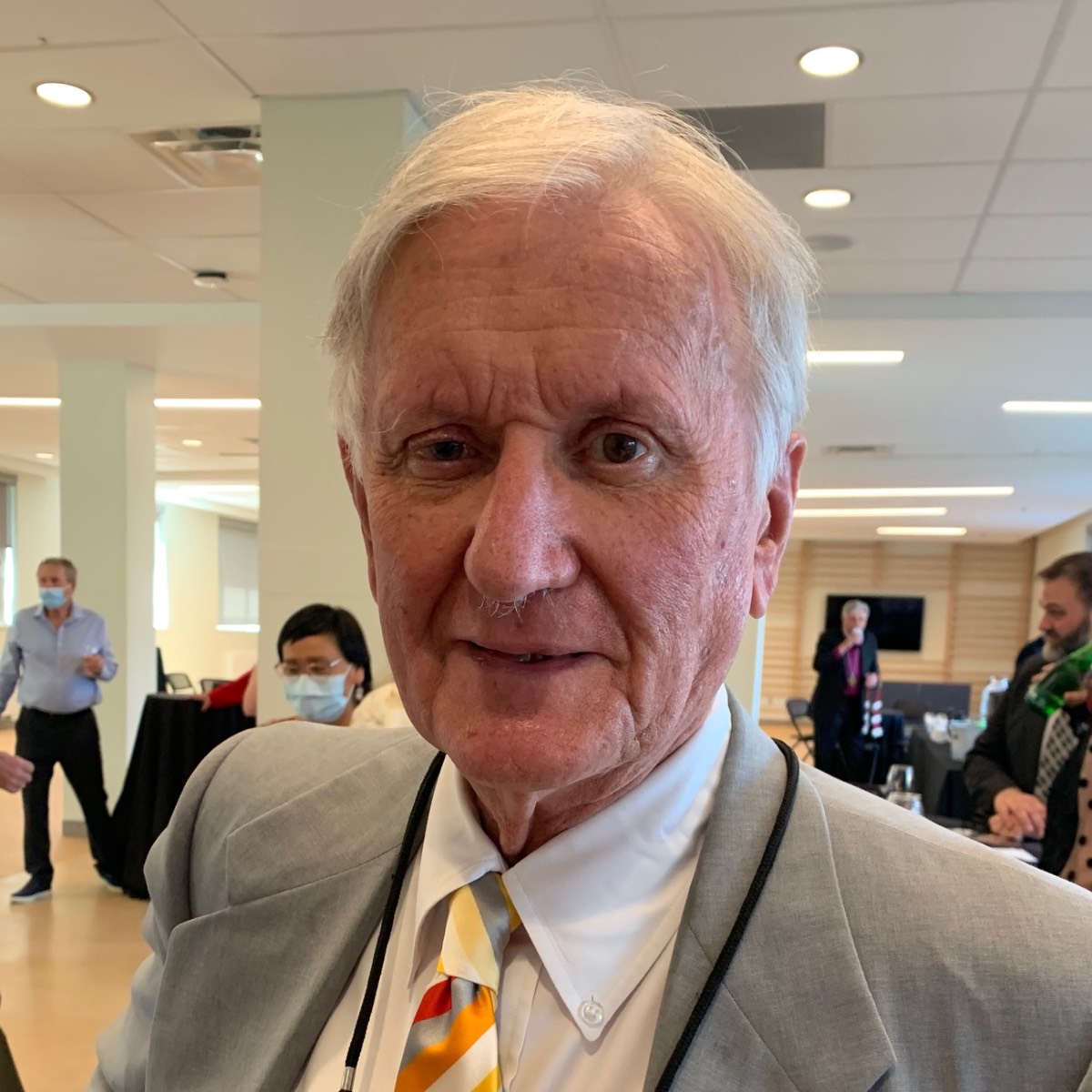Anglicans have shared in the distress that has followed multiple gravesite discoveries at former residential school locations during the summer of 2021.
In his statement issued after the Tk’emlups te Secwépemc First Nation announced that they had found 215 unmarked graves at the site of the Kamloops Indian Residential School, Bishop Shane Parker said, “Now is the time to listen to Indigenous voices and to hear he profound pain, anger and wisdom in those voices.”
The Roman Catholic Church has become embroiled in a wave of anger and outrage over the failure of the Pope to apologize personally for the church’s role in operating 57 of the 101 schools.
Anglicans who are too young to remember and those outside the church may be asking what actions the Anglican Church of Canada and the Diocese of Ottawa have taken thus far, so it may be an appropriate time to reflect on that more recent history as well the longer history of the schools.
It is 31 years since the Oka Crisis when the Mohawk people protested against the proposed expansion of a golf course and townhouse development on disputed land that included a Mohawk burial ground in Kanesatake. The 78-day stand-off in the summer of 1990 reverberated through the country.
In the Diocese of Ottawa, a year after Oka, The Rev. Canon Allen Box produced a paper that challenged the Diocese “to find ways to come together” with Indigenous people, “to listen, learn and be enriched…” Diocesan Synod expressed support for national church initiatives towards reconciliation. Bishop Edwin Lackey commissioned a study that recommended forging links with Indigenous organizations.
That was the spirit of giving that succeeded in raising more than $1 million and it must not be forgotten.
The most significant government action following the Oka crisis was the establishment of the Royal Commission on Aboriginal Peoples which reported in 1996, raising the tragedy of residential schools. The report triggered more than 11,000 lawsuits against the federal government, claiming damages for abuse.
Without undue self-satisfaction, Anglicans with long memories will be thankful that the Primate, Archbishop Michael Peers, apologized formally in 1993 for the church’s participation in running 26 of the schools. The apology set in motion a process of healing and reconciliation within the church that can stand as an inspiration for the wider society. The Primate’s apology came five years before the federal government followed with its own apology.
Years of negotiations between the government and the churches on the extent of their responsibility followed. When the government received a lawsuit, it sued the church responsible for the school which was the subject of the claim. The Anglican Church paid about $5 million in legal fees over five years. The Diocese of Cariboo was forced to close. For a time, it seemed that others would have to follow.
In crisis mode in 2003, the Anglican church broke away from negotiations that were in progress between the four denominations involved and the government and agreed to pay $25 million as its share of liability. Two years later, the amount was reduced to $15.6 million after the other denominations reached a more favourable agreement.
The Diocese of Ottawa established a Residential Schools Settlement Commission, chaired by the Rev. Canon Roger Steinke. It was charged with raising $1.6 million as its contribution to the national church’s commitment. The total was scaled back to just over $1 million when the national church’s obligation was reduced.
Every parish was assigned a “fair share” quota and parishioners responded generously. When treasurer Lorne Bowerman contacted the donor of $500 in a small parish to verify that the decimal was in the right place, he was told, “The family decided that the cause was very just and that they would contribute more than usual to help those who could not make a contribution.” That was the spirit of giving that succeeded in raising more than $1 million and it must not be forgotten.
At the time we thought we were bringing closure to a painful chapter in the church’s history. Within the church perhaps we did. But we are not exempt from the current wave of public outrage. The media frequently refer to “the churches” and while we perhaps feel frustrated — we did “the right thing” — we were undeniably a party to this tragic government policy. The road to reconciliation has become rockier.
The Prime Minister’s repeated calls on the Pope to apologize personally for the role of the Roman Catholic Church, however well justified, are a reminder that the federal government has always been quick to focus the spotlight on the churches.
Its unnecessarily aggressive action against all four denominations that ran schools – Roman Catholic, Anglican, United and Presbyterian – was not preordained. Federal policy established the schools and the government was responsible for the education of Indigenous children.
The Truth and Reconciliation Commission reported six years ago that “The federal government never established an adequate set of standards and regulations to guarantee the health and safety of residential school students and… never adequately enforced the minimal standards and regulations that it did establish.”
Further: “The failure to establish and enforce adequate standards, coupled with the failure to adequately fund the schools, resulted in unnecessarily high death rates at residential schools.”
Notable also, the commission reported extensively on grave sites, providing detailed maps and photographs and recommended a process to the federal government to document the tragic deaths. No action was taken until First Nations released their findings this summer.
Over the summer, The Globe and Mail published excerpts from the damning report written by Dr Peter H. Bryce in 1922. The report offered detailed recommendations to remedy grave problems at the schools. It soon disappeared from sight without action.
It will take a lot more action than a Pope’s apology to bring about closure and reconciliation.
True reconciliation will mean listening and finding ways to come together such as has been counselled by Bishops of Ottawa, present and past.
David Humphreys was a member of the Residential Schools Settlement Commission from 2003 to 2007.


Week of Prayer for Christian Unity annual service to be celebrated at Saint Paul University on Jan. 22